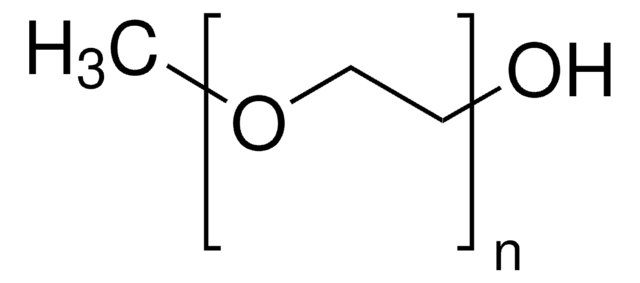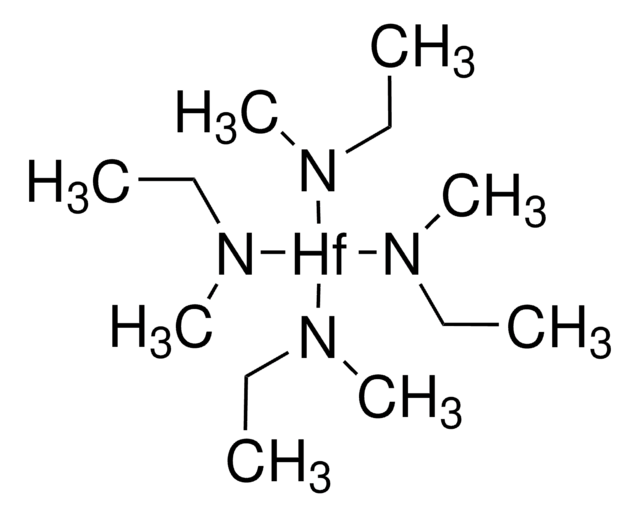706493
(3-Aminopropyl)triethoxysilane
packaged for use in deposition systems, ≥98%
Synonym(s):
3-Triethoxysilylpropylamine, APTES, APTS
About This Item
Recommended Products
Quality Level
Assay
≥98%
form
liquid
bp
217 °C/760 mmHg (lit.)
density
0.946 g/mL at 25 °C (lit.)
SMILES string
CCO[Si](CCCN)(OCC)OCC
InChI
1S/C9H23NO3Si/c1-4-11-14(12-5-2,13-6-3)9-7-8-10/h4-10H2,1-3H3
InChI key
WYTZZXDRDKSJID-UHFFFAOYSA-N
Looking for similar products? Visit Product Comparison Guide
General description
Application
Signal Word
Danger
Hazard Statements
Precautionary Statements
Hazard Classifications
Acute Tox. 4 Oral - Eye Dam. 1 - Skin Corr. 1B - Skin Sens. 1
Storage Class Code
8A - Combustible corrosive hazardous materials
WGK
WGK 1
Flash Point(F)
199.4 °F - closed cup
Flash Point(C)
93 °C - closed cup
Personal Protective Equipment
Choose from one of the most recent versions:
Certificates of Analysis (COA)
Don't see the Right Version?
If you require a particular version, you can look up a specific certificate by the Lot or Batch number.
Already Own This Product?
Find documentation for the products that you have recently purchased in the Document Library.
Customers Also Viewed
Articles
Atomic Layer Deposition (ALD) is a coating technology that allows perfectly conformal deposition onto complex 3D surfaces. The reason for this uniform coating lies in the saturative chemisorption of sequential cycles of precursor vapors.
Nanocomposite Coatings with Tunable Properties Prepared by Atomic Layer Deposition
Silica is a very popular inorganic nanomaterial used in a wide range of applications including fillers for rubber, catalyst supports, separation media, carriers in food and agriculture, and abrasive/anticaking agents in cosmetics. It is also widely believed to be an important material for biomedical applications for following reasons.
Thin film photovoltaic devices have become increasingly important in efficiently harnessing solar energy to meet consumer demand.
Our team of scientists has experience in all areas of research including Life Science, Material Science, Chemical Synthesis, Chromatography, Analytical and many others.
Contact Technical Service









![[3-(Diethylamino)propyl]trimethoxysilane 96%](/deepweb/assets/sigmaaldrich/product/structures/369/056/3e3cd51a-0662-4e06-a10a-866ae1d6c290/640/3e3cd51a-0662-4e06-a10a-866ae1d6c290.png)
![N-[3-(Trimethoxysilyl)propyl]ethylenediamine 97%](/deepweb/assets/sigmaaldrich/product/structures/149/508/f87a9a89-f138-4c5e-9fe0-6561914241c3/640/f87a9a89-f138-4c5e-9fe0-6561914241c3.png)
